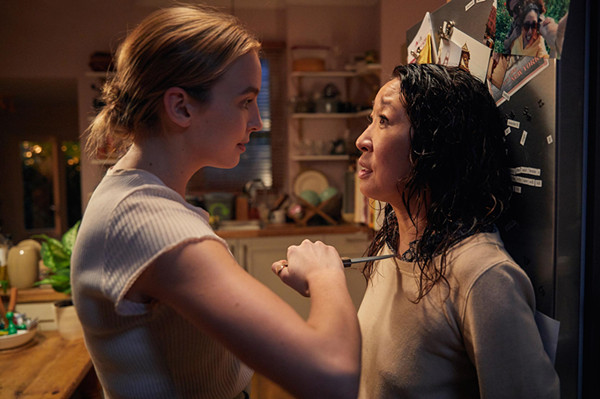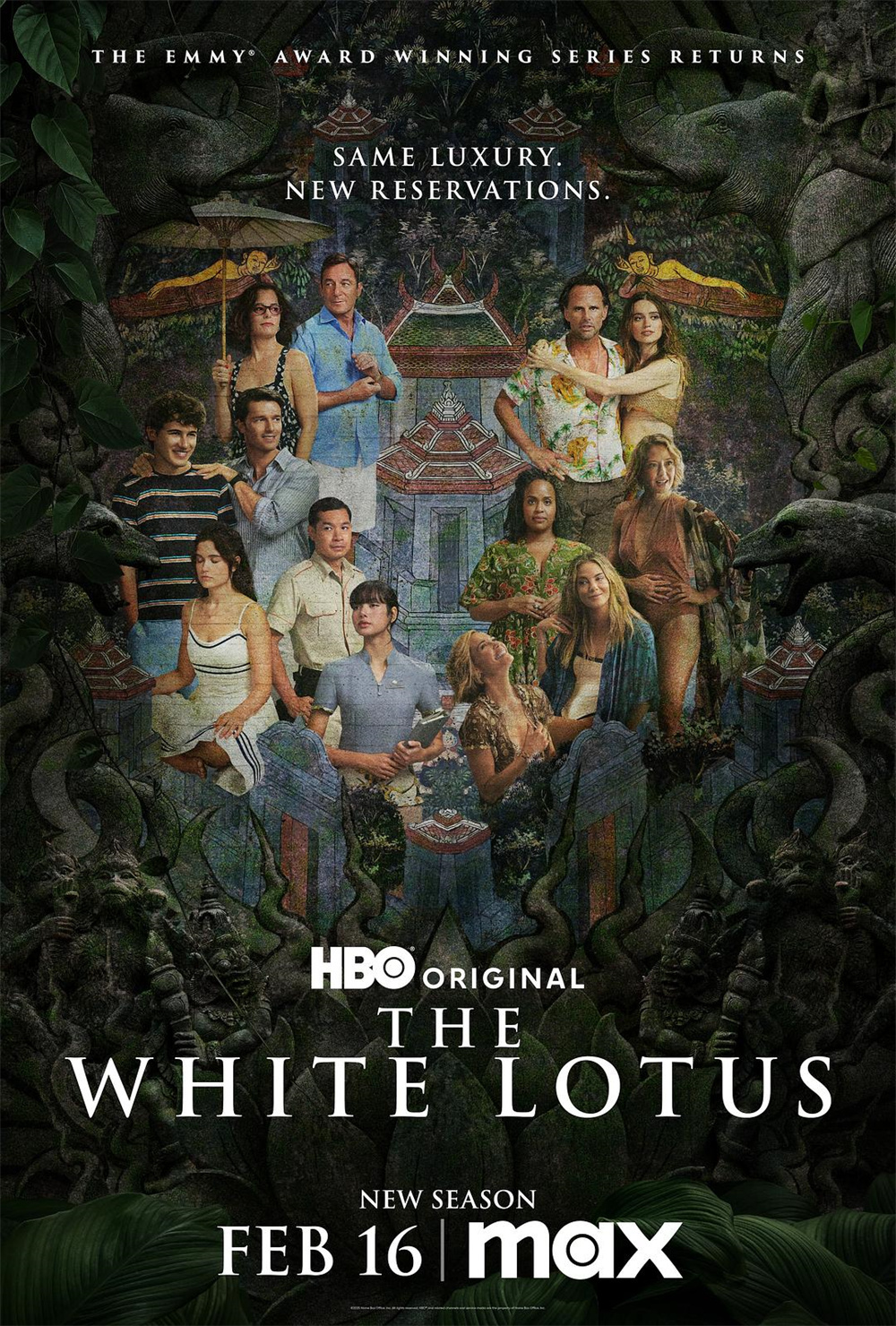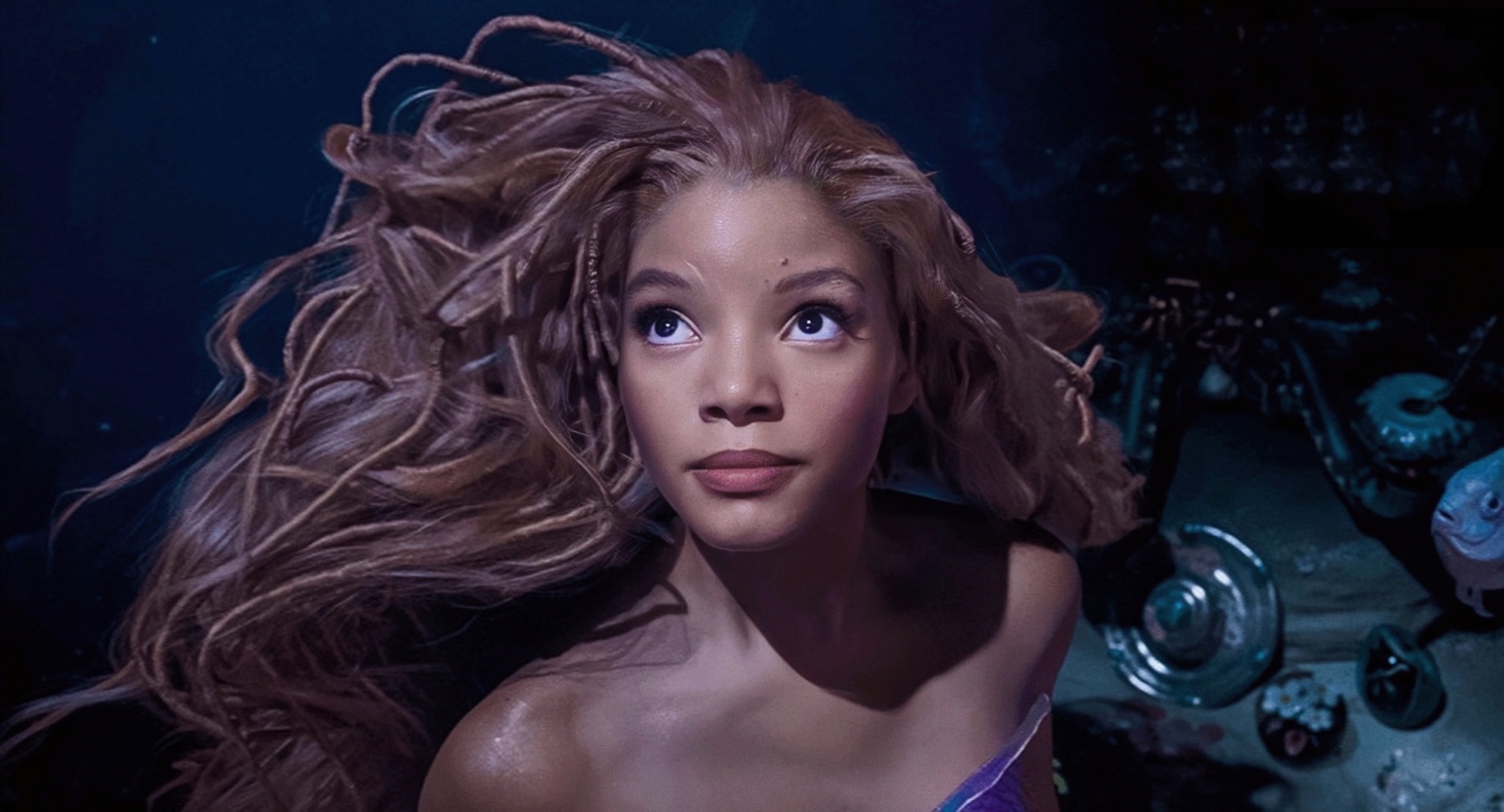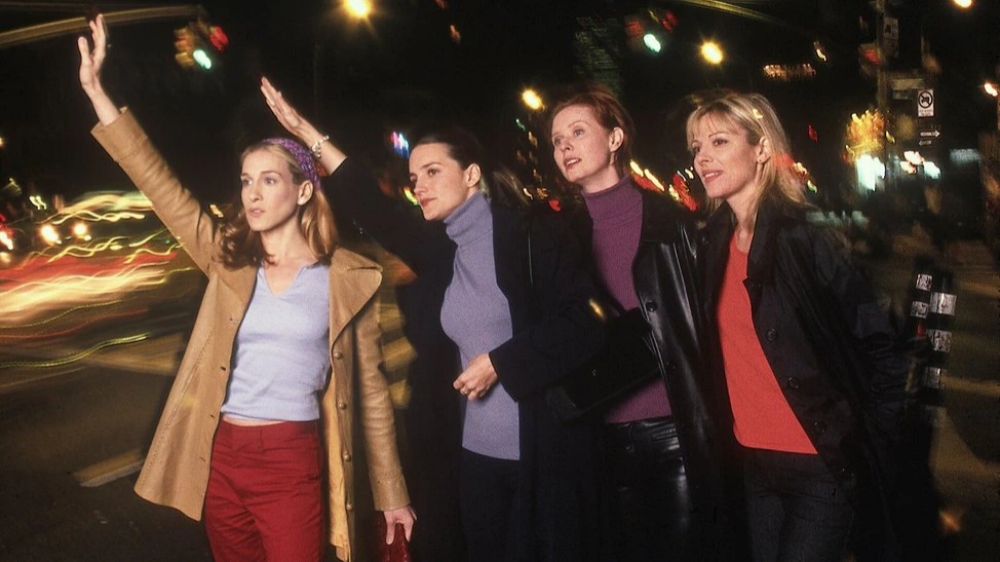
After discussing a number of mixed changes, the final analysis of female-themed British and American dramas in the post-Trump era aims to highlight two positive trends that have emerged in the creation of female-centered narratives through some outstanding works.

Still from "Killing Eve"
Diminished Ensemble, Shining Duos
As I mentioned in the first analysis, the female ensemble dramas of the past eight years have lost their luster, but at the same time, an increasing number of dual-lead dramas featuring two female protagonists have hit the screens, many of which have high acclaim and viewership.
There's no need to elaborate on "My Brilliant Friend," adapted from the classic female novel "The Neapolitan Novels." In recent years, numerous suspense dramas featuring dual female leads have emerged, such as "Killing Eve," "The Unseen," "Mare of Easttown," "True Detective" Season 4, and more, including surprising works like "The Desperate Housewives" that continuously broaden the female relationships in narratives.

Still from "My Brilliant Friend"
Generally speaking, ensemble dramas must manage storylines for various characters, leading to a limited amount of screen time for each character. To maintain the dynamic balance within a female group, ensemble dramas cannot overly focus on the relationship between two specific female characters. These factors objectively restrict the exploration of relationships between women in ensemble dramas featuring women.
In contrast, dual-lead series do not face such constraints; in fact, deeply portraying the relationship between the two female leads and centering the story around it is precisely what makes dual-lead dramas so appealing to viewers.
With the rise of feminism and further advocacy for women's rights globally, compared to two decades ago, more and more women are starting to focus on their own needs and values. This trend is reflected in recent British and American productions: the emphasis on romantic love in previous female-centric narratives is no longer the focal point, and the relationships between female and male characters are also becoming less emphasized.
This isn't to say that intimate relationships are no longer important to women; rather, the various relationships and identities women experience throughout their lives deserve recognition. Only when all these relationships are presented can a female character in a female narrative be complete.

Still from "My Brilliant Friend"
In traditional patriarchal narratives, relationships between women are often superficial or fraught with tension. Within a male-dominated power structure, women are typically portrayed as individuals competing for resources — whether tangible like material gains or opportunities, or intangible such as attention, love, recognition, and reliable relationships. In the understanding of those in power towards the subordinate, women at the lower tier are unable to form genuine understanding, support, or deep connections due to the presence of competition.
Only fellow women can truly understand what it means to be a "woman," and in shared circumstances, recognize that the aforementioned understanding is indeed skewed. Dual-lead dramas aim to correct this biased conclusion that emanates from male-centric narratives and is perpetuated among women.
However, imagining relationships between women solely as harmonious "besties" or falling into a "girls help girls" cheerful trope clearly portrays a simplistic and crude labeling of female relationships. The reason "My Brilliant Friend" resonates so widely with female viewers worldwide is its intricate and non-judgmental portrayal of the complexities of friendships among women — every woman who has spent years with their best friend can empathize with the mix of competition, mutual recognition, jealousy, longing, and emotional projections that such relationships entail.

Still from "The Desperate Housewives"
Yet, the most surprising dual-lead drama for me over the past eight years is not "My Brilliant Friend" but HBO Max's "The Desperate Housewives." Though classified as a 30-minute comedy, the dense humor does not detract from the touching representation of relationships between women in this series.
The female leads in dual-lead dramas are often reflective of each other; this is true for "Killing Eve," "My Brilliant Friend," and "True Detective" Season 4, and "The Desperate Housewives" follows the same pattern. However, this time we witness two lead characters with a 40-year age gap — a successful elderly talk show host and a Gen Z writer entering the industry, which is a highly unusual setup.
It’s important to recognize that the concept of gender equality among women has only gradually taken hold over the past fifty years. Issues like workplace sexual harassment, female sexual consent, reproductive autonomy, and gender discrimination in employment have gained more societal recognition and importance only in the past decade or two. Therefore, age is a critical dimension that can hinder mutual understanding among women — consider the differences in views on female issues between you and your mother or grandmother.
"The Desperate Housewives" uniquely brings together two women who have grown through different phases of the feminist movement, creating a fresh comparison ripe with possibility for conflict.

Still from "The Desperate Housewives"
Due to their age difference, the two leads have entirely different understandings of what "women’s rights" mean. A legendary talk show host named Deborah, who broke industry barriers in action 40 years ago and was seen as a feminist pioneer, is viewed by Gen Z writer Ava as an outdated figure who cannot acknowledge diverse female sexual orientations, trivializes male verbal harassment as a joke, and belittles women to fit in with male power dynamics.
The conflicts and frictions between Deborah and Ava precisely highlight the difficult yet substantive changes regarding women's rights over the past few decades and serve as a reminder to contemporary women viewers — we should not take our current discourse rights for granted, nor should we relinquish the continued fight for the equal rights women deserve.
In "The Desperate Housewives," the two women, separated by over forty years, initially repel one another but gradually come together, ultimately influencing and changing each other's experiences — epitomizing the precious understanding and recognition that exists between women.
As members of the second sex, we continuously see ourselves in one another and ultimately become our true selves while helping each other along the way.
The Career Peaks of Female Detectives
Once upon a time, the only female detective known to the public was Miss Jane Marple from Agatha Christie’s novels, but now, British and American detective series have become a stage for strong female leads.
If we look back at British and American mystery series from a decade ago, it’s clear that most protagonists were male, with countless classic single-male-lead and dual-male-lead detective series. Even in ensemble detective series (like the well-known "CSI" and "Criminal Minds" series) or dual-gender detective series (like "Castle," "The Blacklist," and "The X-Files"), female agents often occupy subordinate roles, either having low rank or playing supportive roles in advancing the plot — always slightly less important than their male counterparts. Series like "Veronica Mars," which focus entirely on a female detective character, were exceedingly rare.
This situation has reversed over the past eight years.
Firstly, in ensemble detective series, I have seen more female leaders in detective departments, especially in British dramas. Shows such as "Unforgotten," "The Bay," and "Marcella" have created diverse female detective characters who can lead teams and uphold justice.

Still from "Unforgotten"
Crafting female detective characters can be challenging, as creators can easily fall into expectations regarding what audiences want to see in a female detective — that is, being "female" first, and then "detective." It's understandable that creators want to impart female attributes or some labeled impressions on a female detective to differentiate her from her male counterparts. Nonetheless, by focusing on female traits and overlooking the professional attributes, they risk undermining the character of a female detective. Especially in crime enforcement series, the ability to capture a perpetrator and deliver justice for victims must take precedence over the detective's gender. Respecting that a female detective is primarily a detective capable of performing the job excellently is key to modeling such characters.
The character of Chief Inspector Cassie in the British series "Unforgotten" is a very successful female detective within ensemble detective narratives. From Season 1 to Season 4, Cassie led her team to solve numerous cold cases. Throughout these investigations, there is no sign of the personal heroism that often accompanies male detectives, nor an emphasis on female detectives being exceptionally empathetic toward victims. What we see is a pragmatic, astute, justice-seeking detective who greatly values teamwork. After four seasons, you might even forget Cassie’s gender, respecting her as a dedicated detective just as her subordinates and colleagues do, sincerely wishing that all victims and their families could encounter a detective like her who never uses empty banter.
However, this does not mean that a female perspective should not be present in detective roles. HBO's 2021 suspense series "Mare of Easttown," featuring Kate Winslet as Detective Mare, is another exemplary case.

Still from "Mare of Easttown"
The story of "Mare of Easttown" is quite successful, intertwining multiple cases and creating a strong sense of suspense. The town's female detective Mare navigates between victims and various suspects and their families, while Mare herself is also a mother grappling with the tragedy of her son's suicide. The identity of being a mother is undoubtedly a distinctive female perspective in this series, but what "Mare of Easttown" excels at is that it does not allow the identity of a devastated mother to overshadow Mare's role as a professional detective. Thus, while we follow the suspense to find the killer, we also see a mother who stands resilient against her fate for her family and herself, profoundly understanding the choices she must make as a detective when the unexpected killer is revealed.
Notable female detective roles also appear in dual-lead suspense dramas, as I mentioned earlier with "The Unseen," "The Bay," and "True Detective" Season 4.
Interestingly, besides detectives who inherently bear the responsibility to combat crime, the identities of female detective characters in the post-Trump era have also expanded. In recent popular suspense series, female lawyers ("The Good Fight," "The Practice"), female editors ("The Silhouette Murders," "The Moonflower Murders"), and female casino employees ("Poker Face") have all worked through labyrinthine cases, breaking unusual mysteries.
Compared to the standout "Veronica Mars" from twenty years ago, female detectives are now reaching the peak of their careers.


